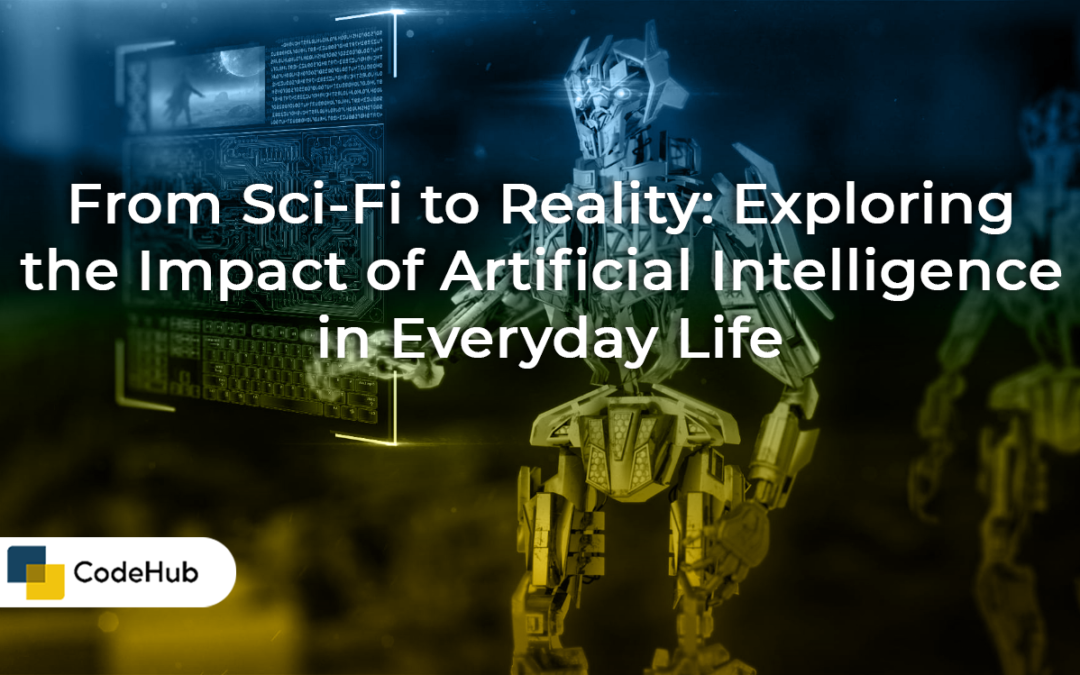Artificial intelligence (AI) is no longer a futuristic concept confined to science fiction novels and movies. It is a reality that is transforming every aspect of our lives, from how we communicate, work, learn, shop, travel, entertain ourselves, and more. AI is the ability of machines to perform tasks that normally require human intelligence, such as understanding language, recognizing images, making decisions, and solving problems. AI can also augment human capabilities by providing insights, suggestions, and assistance.
AI is everywhere around us, often without us noticing it. Here are some examples of how AI impacts our everyday life:
- Personal assistants: AI-powered voice assistants like Siri, Alexa, Cortana, and Google Assistant can help us with various tasks, such as setting reminders, playing music, checking the weather, ordering food, booking flights, and more. They can also answer our questions and have conversations with us using natural language processing and generation.
- Social media: AI algorithms analyze our online behavior and preferences to provide us with personalized content, recommendations, and ads on platforms like Facebook, Instagram, Twitter, YouTube, TikTok, and more. They can also filter out spam, fake news, and harmful content using natural language understanding and computer vision.
- Entertainment: AI can create and enhance various forms of entertainment, such as music, movies, games, art, and literature. For example, AI can compose original music based on our mood and taste, generate realistic visual effects and animations for movies and games, create stunning artworks and designs using style transfer and generative adversarial networks (GANs), and write stories and poems using natural language generation.
- Education: AI can improve the quality and accessibility of education by providing personalized learning experiences, feedback, and guidance to students and teachers. For example, AI can adapt the curriculum and pace of learning to each student’s needs and goals using adaptive learning systems. It can also grade assignments and tests using natural language understanding and computer vision. Moreover, AI can enable online learning platforms that offer courses from experts around the world using natural language processing and speech recognition.
- Healthcare: AI can enhance the diagnosis and treatment of various diseases and conditions by analyzing medical data and images using machine learning and deep learning. For example, AI can detect cancerous tumors from X-rays and MRI scans using computer vision. It can also recommend the best treatment options based on the patient’s history and symptoms using natural language processing and knowledge graphs. Furthermore, AI can monitor the patient’s health and well-being using wearable devices and sensors that collect biometric data.
- Transportation: AI can improve the safety and efficiency of transportation by enabling autonomous vehicles that can drive themselves using computer vision, lidar (light detection and ranging), radar (radio detection and ranging), GPS (global positioning system), and deep reinforcement learning. AI can also optimize traffic flow and reduce congestion by analyzing real-time data from cameras, sensors, satellites, and maps using machine learning.
These are just some of the many ways that AI impacts our everyday life. As AI technology advances further in the future, we can expect more applications that will make our lives easier, more convenient, more productive, more creative, and more fun.

